Health care-associated infection HAI also referred to as nosocomial or hospital infection is an infection occurring in a patient during the process of care in a hospital or other health care facility which was not present or incubating at the time of admission. Preventing Healthcare-associated Infections.
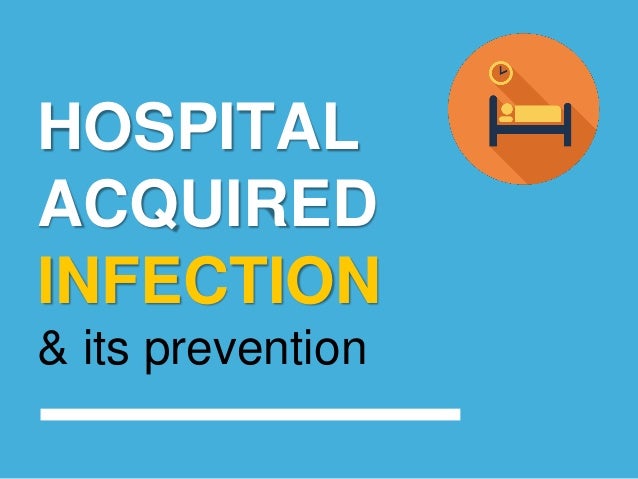 Hospital Acquired Infection And Its Prevention
Hospital Acquired Infection And Its Prevention
Healthcare-associated infections HCAIs can develop either as a direct result of healthcare interventions such as medical or surgical treatment or from being in contact with a healthcare setting.
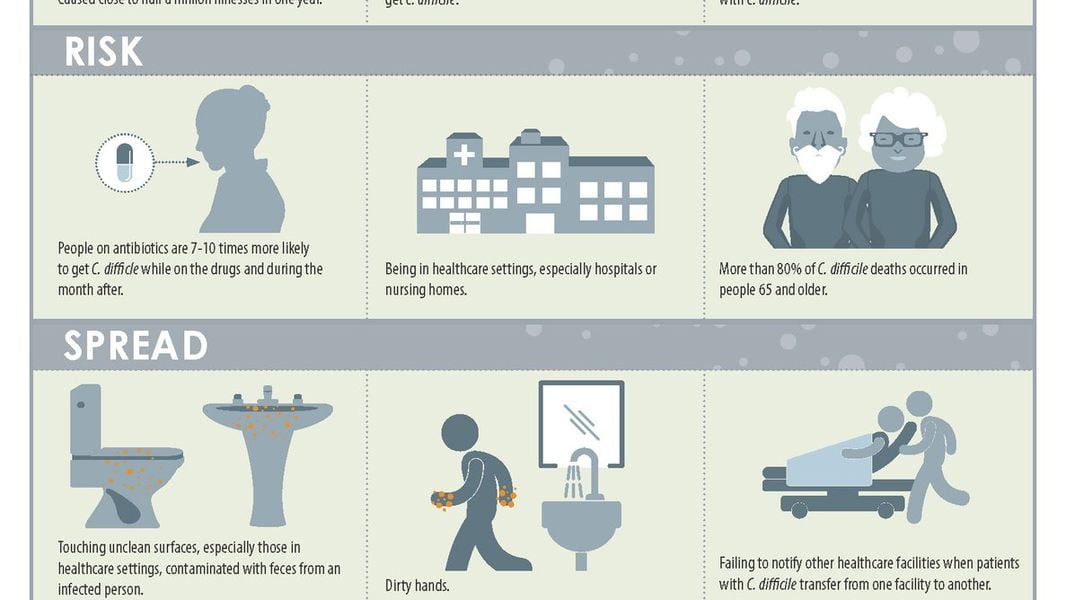
What is a healthcare acquired infection. They are varied and complex. A hospital-acquired infection is usually one that first appears three days after a patient is admitted to a hospital or other health care facility. In NSW hospital staff maintain high infection control standards.
What does the term healthcare associated infection HCAI mean. The most well-known include those caused by methicillin-resistant Staphylococcus aureus MRSA and Clostridium difficile C. These infections are usually acquired after hospitalization and manifest 48 hours after admission t.
Healthcare associated infections HAIs are an ever-present factor in every health system. How to wash your hands Help to stop the spread of harmful viruses and bacteria. As a result infection prevention and control is a key priority for the NHS.
To receive email updates about this page enter your email address. The term has recently been coined in recognition that. Factors such as illness age and treatment being received can all make patients more vulnerable to infection.
Many are caused by multi-resistant organisms known as MROs that can be difficult to detect and treat. Hospital-acquired infections also known as healthcare-associated infections HAI are nosocomially acquired infections that are typically not present or might be incubating at the time of admission. Health care system every year leading to the loss of tens of thousands of lives.
Learn the signs and symptoms of Sepsis. Healthcare associated infection. Innovative Research to Support Safe Healthcare.
Healthcare associated infections HCAI These are infections that occur in a healthcare setting such as a hospital that a patient didnt have before they came in. Over a million HAIs occur across the US. Earn free CE and learn best practices to.
Infections acquired in a. Many infections are caused by micro-organisms already present in or on the. What is a healthcare-associated infection.
Healthcare-associated infections are a serious risk to patients staff and visitors. This is almost three times higher than in high-income countries. The term HCAI covers a wide range of infections.
Health care-associated infections HAIs are infections people get while theyre receiving health care for another condition. The proportion of patients with ICU-acquired infection ranged from 44 to 889 with a frequency of overall infections as high as 427 episodes per 1000 patient- days. Safe Healthcare Webinar Series.
Get Email Updates. Infections that appear after your hospital stay must. Healthcare-associated infections HAIs are those infections that are acquired as a direct or indirect result of healthcare.
Nosocomial infections or healthcare associated infections occur when a person develops an infection during their time at a healthcare facility. Catheter-associated urinary tract infections CAUTI Surgical site infections SSIs Central line-associated bloodstream infections CLABSI Ventilator-associated pneumonia VAP. HAI can affect patients in any type of setting where they receive care and can also appear after discharge.
Healthcare-associated infections HAIs are among the leading threats to patient safety affecting one out of every 31 hospital patients at any one time. Healthcare associated infection refers to infections that occur as a result of contact with the healthcare system in its widest sense - from care provided in your own home to primary care nursing home care and care in acute hospitals. HAIs can happen in any health care facility including hospitals ambulatory surgical centers end-stage renal disease facilities and long-term care facilities.
Healthcare-associated infections HCAIs can develop either as a direct result of healthcare interventions such as medical or surgical treatment or from being in contact with a healthcare setting. Healthcare-associated infections are one of the most common complications affecting patients in hospital. Furthermore in some developing countries the frequency of infections associated with the use of central lines and ventilators and other invasive devices can be.
The term HCAI covers a wide range of infections. Bacteria fungi viruses or other less common pathogens can cause HAIs. Healthcare associated infections Healthcare-associated infections can happen during healthcare delivery in hospitals residential facilities outpatient services and even in a patients home.
They can cause significant morbidity to those infected and significant costs for the NHS. Healthcare-associated infections cover any infection contracted. The most common types of hospital-acquired infections include.
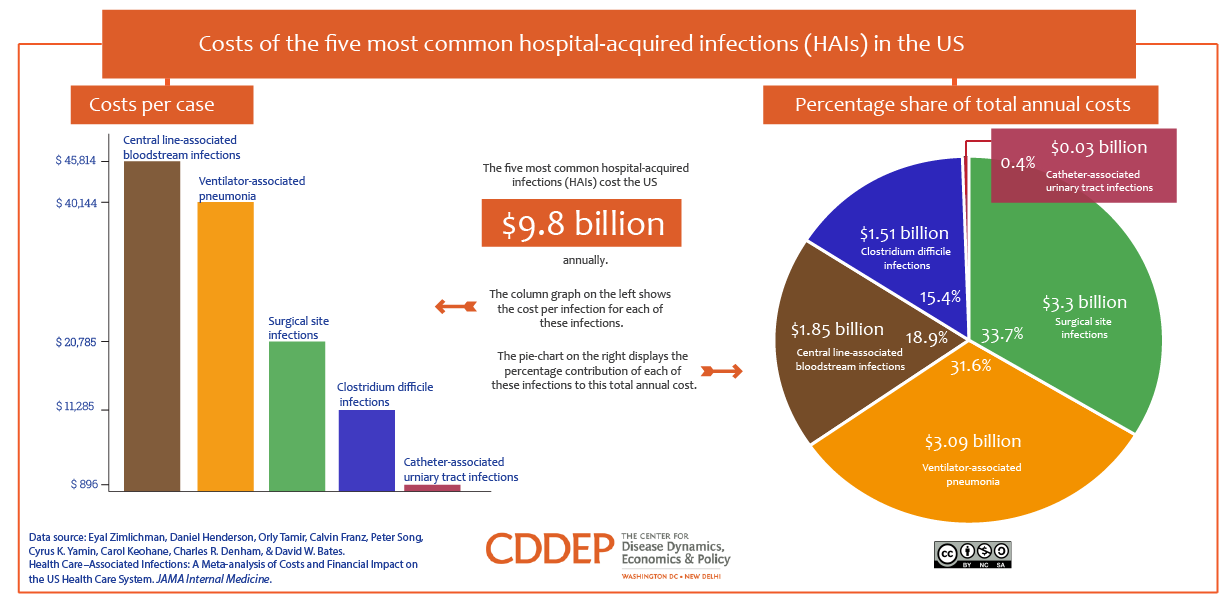 How To Fight Hospital Acquired Infections Ecd Systems
How To Fight Hospital Acquired Infections Ecd Systems
 Common Causes Of Hospital Acquired Infections Chalik Chalik
Common Causes Of Hospital Acquired Infections Chalik Chalik
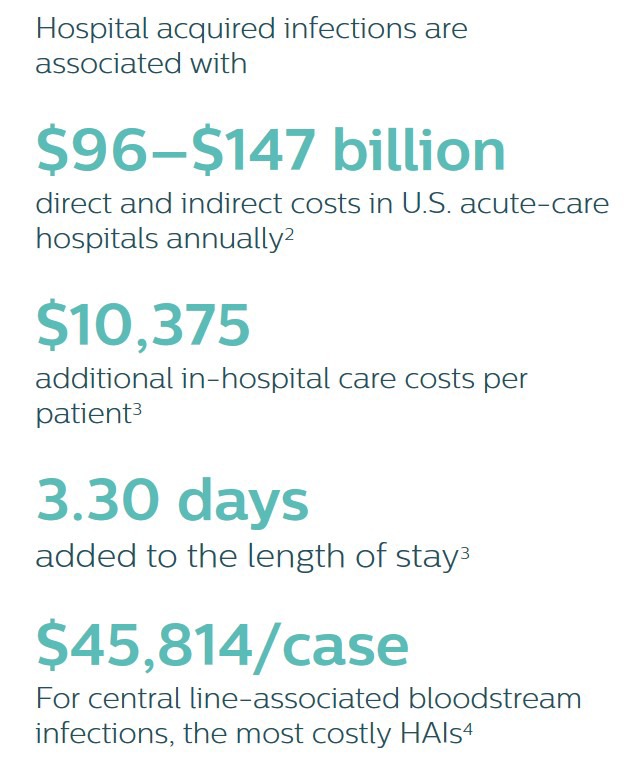 Philips Healthcare Managing Hospital Acquired Infections
Philips Healthcare Managing Hospital Acquired Infections
 Hospital Acquired Infections Market 2023 To Get Expand In Size By Revenue 36 16 Bn Up To 2023 Medgadget
Hospital Acquired Infections Market 2023 To Get Expand In Size By Revenue 36 16 Bn Up To 2023 Medgadget
 Hospital Acquired Infection Control Market Global Forecasts And Drivers By Technavio Business Wire
Hospital Acquired Infection Control Market Global Forecasts And Drivers By Technavio Business Wire
 Relative Frequency Of Hospital Acquired Infections Hai N 84 Download Scientific Diagram
Relative Frequency Of Hospital Acquired Infections Hai N 84 Download Scientific Diagram
Reducing Hospital Acquired Infections Sbh Health System
Prevent Healthcare Acquired Infections Share How To Have
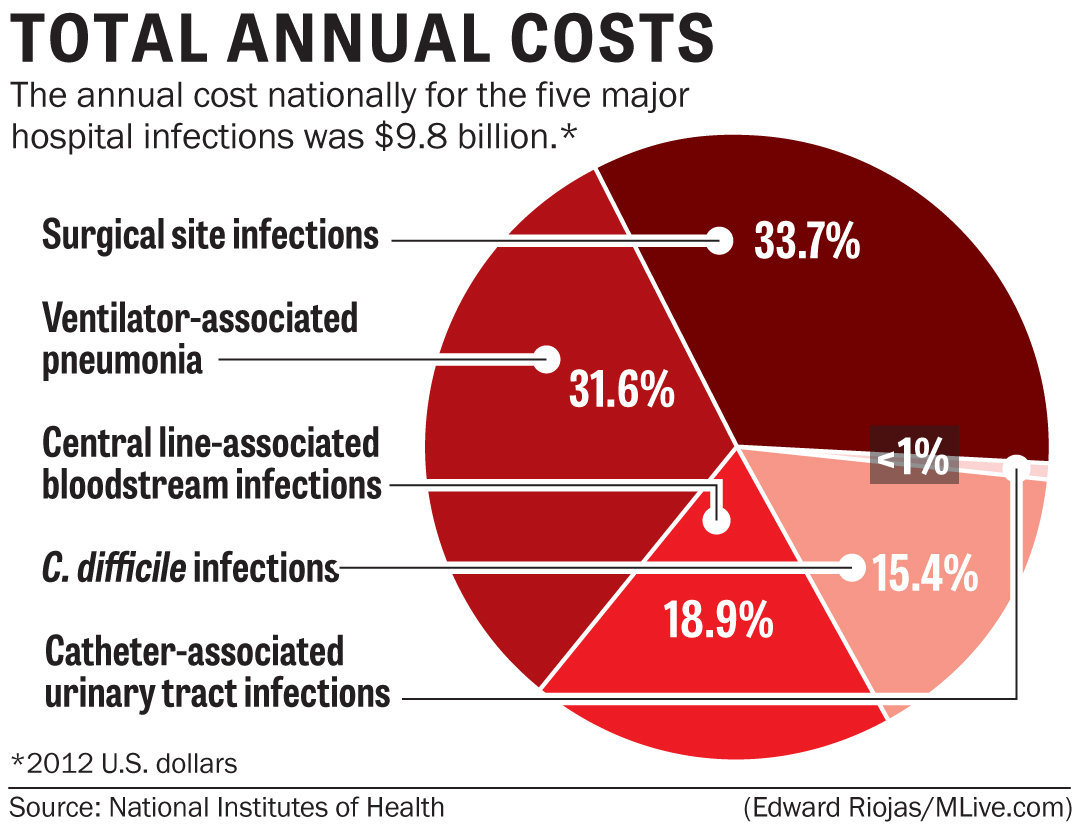 What Are Hospital Acquired Infections Infection Control Results
What Are Hospital Acquired Infections Infection Control Results
 29 Healthcare Associated Infections Ideas Infections Health Care Infection Prevention
29 Healthcare Associated Infections Ideas Infections Health Care Infection Prevention
 Prevention Of Hospital Acquired Infections How Germinator Can Help Medical Facilities
Prevention Of Hospital Acquired Infections How Germinator Can Help Medical Facilities
 Georgia Patients Still At Risk From Hospital Acquired Infections
Georgia Patients Still At Risk From Hospital Acquired Infections
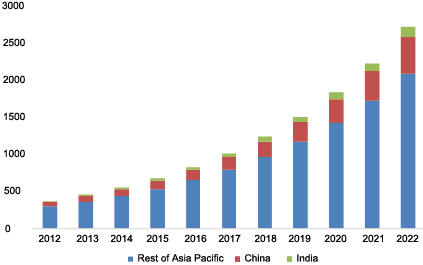 Hospital Acquired Infections Diagnostics Market Report 2022
Hospital Acquired Infections Diagnostics Market Report 2022
 Hospital Acquired Infections The Accupoint Hc Atp Testing Program Measures The Effectiveness Of A Facility Infection Control Nursing Infections Nursing Notes
Hospital Acquired Infections The Accupoint Hc Atp Testing Program Measures The Effectiveness Of A Facility Infection Control Nursing Infections Nursing Notes
No comments:
Post a Comment
Note: Only a member of this blog may post a comment.